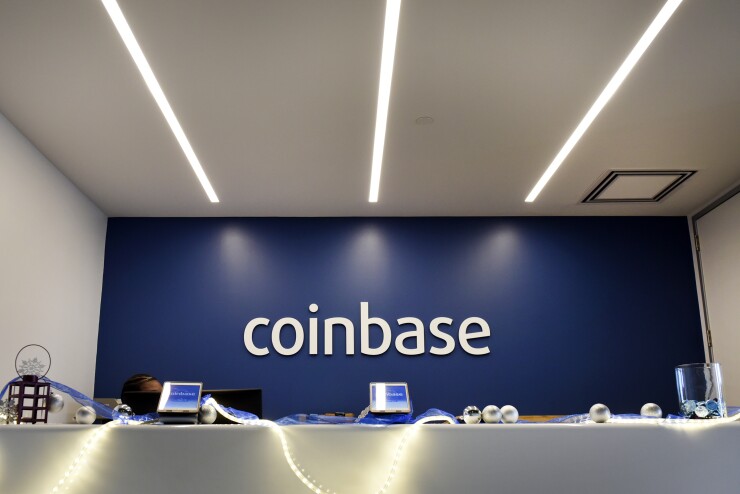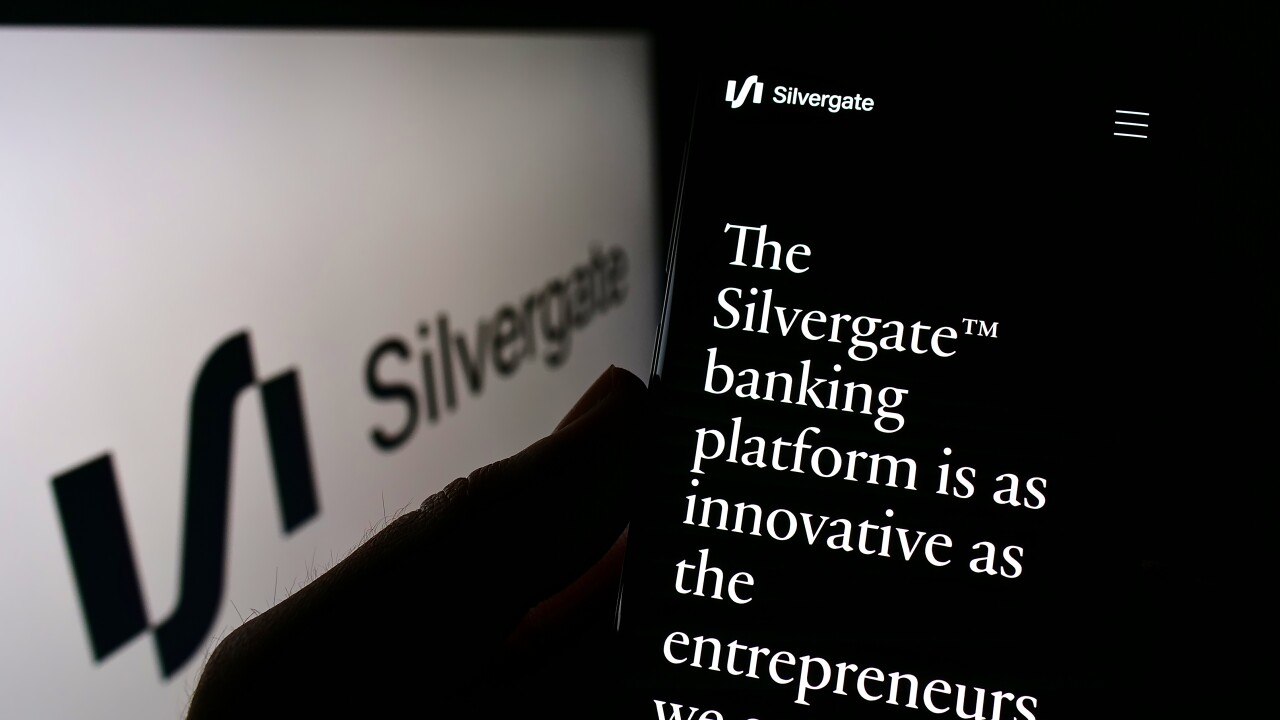
Digital asset company Coinbase has sued the Federal Deposit Insurance Corp. in the federal district court of the District of Columbia over the agency's efforts to block banks from working with crypto companies.
The company is simply asking that the agency disclose the "pause letters" it has sent over the past few years to banks, and related documents. The FDIC has denied Coinbase's Freedom of Information Act requests, according to the company.
But the case could bring about a change to the freeze banks are under with regard to most crypto activities, either in the direction of formally restricting banks from working with digital asset companies or by allowing some crypto-related activities.
"Financial regulators have used multiple tools at their disposal to try to cripple the digital-asset industry," Paul Grewal, chief legal officer at Coinbase, said in a tweet Thursday. "The FDIC pressured financial institutions to cut off the industry from the banking system. Today we filed lawsuits under the Freedom of Information Act for requests we made over a year ago seeking important information to which we, and the public, are entitled." An FDIC spokesman said the agency does not speak openly about pending litigation. Coinbase also declined a request for an interview.
Bank regulators have been keeping banks from engaging with digital assets, an effort some call "Operation Chokepoint 2.0," for years.
The FDIC issued pause letters between March 2022 and May 2023 to several banks telling them to pause any planned or ongoing crypto-related activities and provide information about these projects, according to an October 2023
In 2021 and early 2022,
In its complaint, Coinbase says the regulator's efforts to keep banks away from crypto is illegal.
"Operation Choke Point 2.0, like its predecessor, is unlawful," the complaint stated. "It is illegal for financial regulators to coerce regulated institutions in secret to cut ties with businesses the government disfavors — particularly those outside the regulators' jurisdiction. Indeed, the Supreme Court unanimously confirmed just weeks ago that these kinds of regulatory pressure campaigns violate the most basic rights protected by the Constitution." (The report cited a case involving the National Rifle Association.)
Coinbase also said the FDIC's refusal to comply with its FOIA requests is illegal.
The shutdowns of Silvergate Capital and Signature Bank are likely to send crypto-related businesses and digital asset innovation offshore.
The FDIC spelled out its stance on digital assets in the 2023 OIG report, which detailed the volatility of crypto assets.
"Financial institutions can be exposed to crypto-asset risks when providing services to crypto-asset companies or engaging in crypto-asset-related activities," it stated, adding that this presents a threat to the FDIC.
"While currently limited, if material exposure of financial institutions to the risks posed by crypto-related activities were to manifest, it may affect the Federal Deposit Insurance Corporation's (FDIC) mission to maintain stability and public confidence in the Nation's financial system," the report stated. "The exposure of financial institutions to the risks posed by crypto-related activities presents safety and soundness risks and consumer protection concerns."
But the OIG report also said the FDIC's "lack of clear procedures causes uncertainty for supervised institutions in determining the appropriate actions to take." It recommended that the FDIC establish a plan with time frames for assessing risks pertaining to crypto-related activities and update and clarify the supervisory feedback process related to its review of supervised institutions' crypto-related activities.
Some industry observers were unmoved by Coinbase's argument.
"This lawsuit is another piece of the coordinated project to build political momentum for crypto legislation," said Todd Baker, senior fellow at the Richman Center for Business, Law & Public Policy at Columbia Business School. "By using legal actions like this to create news stories and social media talking points for sympathetic legislators, the industry seeks to amplify the prodigious amounts being spent by crypto trading interests on direct and indirect campaign contributions as well as traditional lobbying."






